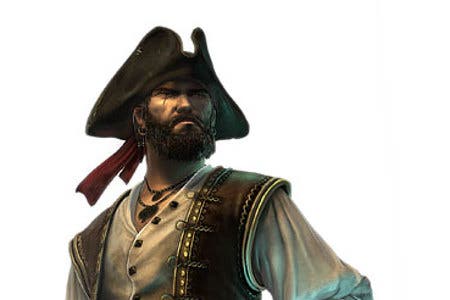Ubisoft has endured a 93-95% piracy rate on PC
Using F2P on PC to guarantee revenue.
Ubisoft has endured a 93 to 95 per cent piracy rate on PC.
That's why it's investing in free-to-play on PC - to guarantee revenue, Ubisoft boss Yves Guillemot told GamesIndustry International.
"We want to develop the PC market quite a lot and F2P is really the way to do it," he said.
"The advantage of F2P is that we can get revenue from countries where we couldn't previously - places where our products were played but not bought. Now with F2P we gain revenue, which helps brands last longer.
"It's a way to get closer to your customers, to make sure you have a revenue. On PC it's only around five to seven per cent of the players who pay for F2P, but normally on PC it's only about five to seven per cent who pay anyway, the rest is pirated. It's around a 93 to 95 per cent piracy rate, so it ends up at about the same percentage. The revenue we get from the people who play is more long term, so we can continue to bring content."
Ubisoft has had a troubled history with PC gamers. It's come in for criticism for its DRM efforts and releasing PC versions of multiplatform games after the console versions. It'll do it again this year with the launch of Assassins' Creed 3, which launches on PC two weeks after console.
At Gamescom last week Ubisoft announced a raft of PC exclusive F2P titles, including Silent Hunter Online, Anno Online, The Settlers Online and Heroes of Might Heroes Online. It's also got Shootmania Storm and Ghost Recon Online in the works.
In March this year Ubisoft's digital boss Chris Early told Eurogamer that Ubisoft wanted to offer PC gamers so much value with its franchises that the need for its controversial DRM "goes away".
It hopes strategies including companion gaming, which sees spin-off experiences on mobile devices and social platforms feed into their related core games, and constant game updates, will discourage piracy. In short, it wants to create systems similar to those used by MMO makers for its games.
"Will some people still pirate? Yeah, they will. Will the person who really wants that broad experience pirate? We hope not," he said.
Ubisoft attracted gamers' ire when it announced that the PC versions of both Driver: San Francisco and From Dust required users to log on to the internet every time they played the game.
Such was the outcry that Ubisoft changed its mind, tweaking Driver's DRM so that players would no longer require always-on internet to enjoy it.
But that didn't prevent a number of Ubisoft PC games, including Driver and Anno 2070, from being completely unplayable online and offline when the company moved its gaming servers over to a third-party.
The publisher then claimed its DRM policy was a success, insisting it had seen "a clear reduction in piracy of our titles which required a persistent online connection".
In September last year Eurogamer asked, How bad is PC piracy really?









